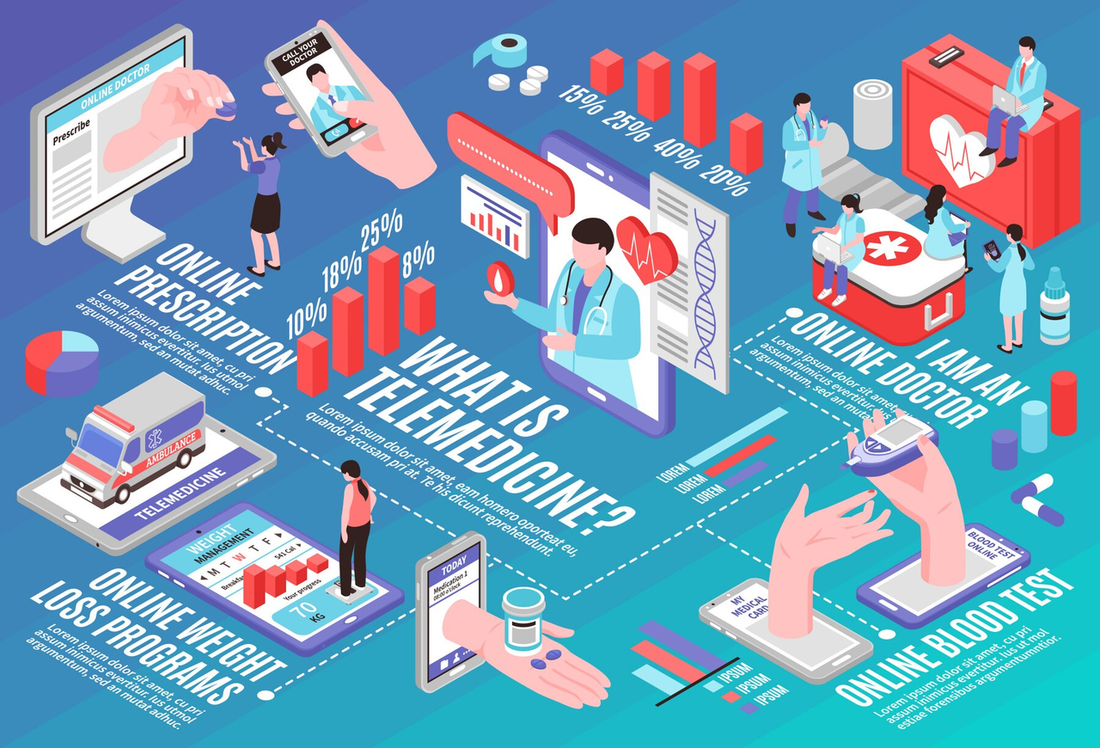The integration of technology into healthcare has revolutionized the way we manage our health. From wearable devices to mobile health apps, technology provides us with tools to monitor, track, and improve our well-being. Here’s how you can leverage these advancements to manage your health effectively.
Understanding Health Technology
1. What is Health Technology?
Health technology encompasses a wide range of devices, applications, and systems designed to improve healthcare delivery and personal health management. It includes everything from fitness trackers and smartwatches to telemedicine platforms and health information systems.
2. The Role of Technology in Health Management:
Technology offers several benefits, including real-time health monitoring, personalized health recommendations, and easy access to medical information. It empowers individuals to take a proactive approach to their health.
Wearable Devices
1. Fitness Trackers and Smartwatches:
Fitness trackers and smartwatches have become popular tools for monitoring physical activity, heart rate, sleep patterns, and more. Devices like Fitbit, Apple Watch, and Garmin provide valuable insights into your daily health metrics.
2. Health Monitoring Devices:
Wearable health monitoring devices, such as continuous glucose monitors (CGMs) and blood pressure monitors, help individuals with chronic conditions manage their health more effectively. These devices provide real-time data and alerts, enabling timely interventions.
3. Benefits of Wearables:
Wearables offer numerous benefits, including increased motivation for physical activity, better sleep tracking, and early detection of potential health issues. They provide a comprehensive view of your health, helping you make informed decisions.
Mobile Health Apps
1. Health Tracking Apps:
Mobile health apps allow you to track various health parameters, such as diet, exercise, weight, and mental health. Popular apps like MyFitnessPal, Headspace, and Calm provide personalized recommendations and support.
2. Telemedicine Platforms:
Telemedicine platforms enable virtual consultations with healthcare providers, making healthcare more accessible and convenient. Apps like Teladoc, Amwell, and Doctor on Demand offer video consultations, prescription management, and follow-up care.
3. Medication Management Apps:
Medication management apps, such as Medisafe and MyTherapy, help you keep track of your medication schedule, set reminders, and monitor adherence. These apps ensure you never miss a dose and help prevent medication errors.
Health Information Systems
1. Electronic Health Records (EHRs):
EHRs store your medical history, test results, and treatment plans in a digital format. They allow healthcare providers to access your health information quickly and provide coordinated care. Systems like Epic and Cerner are widely used in healthcare settings.
2. Patient Portals:
Patient portals provide secure online access to your health information, including lab results, appointment scheduling, and messaging with healthcare providers. They empower you to actively participate in your healthcare.
3. Health Information Networks:
Health information networks facilitate the exchange of health data between different healthcare providers, ensuring continuity of care. They improve care coordination and reduce duplication of tests and procedures.
Personalized Health Recommendations
1. AI and Machine Learning:
Artificial intelligence (AI) and machine learning algorithms analyze your health data to provide personalized recommendations. Apps like Welltory and Lumen use AI to offer insights into stress levels, metabolism, and overall health.
2. Virtual Health Coaches:
Virtual health coaches provide guidance and support for achieving your health goals. They offer personalized advice on nutrition, exercise, and lifestyle changes. Apps like Noom and Vida Health connect you with virtual coaches.
3. Genetic Testing:
Genetic testing services, such as 23andMe and AncestryDNA, offer insights into your genetic predispositions and health risks. They provide personalized health reports and recommendations based on your genetic profile.
Practical Tips for Using Health Technology
1. Choosing the Right Devices and Apps:
Select devices and apps that align with your health goals and preferences. Consider factors like ease of use, compatibility with your lifestyle, and data accuracy.
2. Integrating Technology into Your Routine:
Incorporate health technology into your daily routine to maximize its benefits. Set reminders for using apps and wearables, and review your health data regularly to track progress and make adjustments.
3. Staying Informed:
Stay updated on the latest advancements in health technology. Follow reputable sources, join online communities, and participate in webinars to learn about new tools and best practices.
4. Ensuring Data Privacy:
Protect your health data by choosing apps and devices with robust security measures. Review privacy policies and settings to control how your data is collected, stored, and shared.




